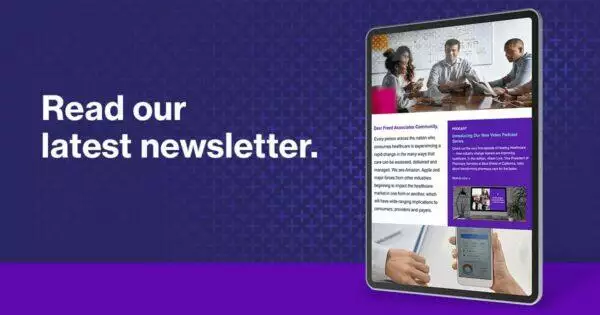Maximizing Membership Growth through New Open Enrollment Strategy
A national health plan sought to increase new health plan membership and improve current member retention by expanding its enrollment facilitation program into additional states. The health plan lacked the bandwidth to appropriately expand the enrollment facilitation program, objectively assess its best practices and create a national program template.

Problem to Solve
How does your health plan help enrollees make sense of their choices? Open enrollment can be stressful and confusing for employees, as any HR benefits specialist can attest. Health insurers that facilitate an organization’s open enrollment activities by understanding the needs and preferences of various employee types and addressing the interests and concerns of individual employees stand a greater likelihood of increasing their membership and improving their member relationships.
A national health plan sought to increase new health plan membership and improve current member retention by expanding its enrollment facilitation program into additional states. Operating on the “front line” during open enrollment periods, the health plan’s enrollment specialists are responsible for conducting group presentations to employees at client companies, representing the health plan at enrollment events and addressing individual employee questions about the health plan’s insurance products. Primarily, the enrollment specialists seek to make the health plan’s insurance options more understandable and enrollment decision-making easier.
While the health plan’s enrollment facilitation program had proven successful when and where offered, it lacked the bandwidth to appropriately expand it, objectively assess its best practices and create a national program template. The health plan engaged Freed Associates (Freed) to address these needs and its product offerings.
Strategy and Tactics
At the heart of the health plan’s enrollment facilitation program are its dedicated enrollment specialists – on-call staff members available to represent the health plan at multiple employer locations during open enrollment periods – predominantly at year-end. Personable, engaging and highly experienced with both the health plan and its insurance products, the enrollment specialists are literally the “face” of the organization during open enrollment.
Not only do the enrollment specialists bolster the health plan’s opportunities for membership growth and retention, they also serve as a cost- and time-effective resource for the organization. With lower-cost enrollment specialists working at the employee enrollment level, the health plan’s higher-cost sales executives can work more exclusively at a strategic level with upper management at client companies.
In locales already offering the health plan’s enrollment facilitation program, Freed’s task was to assess the competencies and execution abilities of the enrollment specialists, identify best practices and transferrable processes, and use that information to expand the program to other locations. The key deliverable was an executable implementation plan template, including guidelines for staffing, recruiting, hiring and training enrollment specialists, that the health plan could apply nationally. Program and role continuity and consistency were crucial.
Freed began by conducting and completing a comprehensive assessment of prior- and current-state activities associated with the enrollment facilitation program. What worked well, and why? What did not? What were the optimal number of staff members needed to serve a certain geographic area and/or set number of employers? What competencies and skillsets were most desirable in the enrollment specialists?
Based on this assessment information a work plan was created for expanding the health plan’s enrollment facilitation program into other states. This included conceiving a new staffing model and recruiting plan for these locations, creating a new training program based on the best-practice processes identified, and implementing these plans within the client’s desired business time frame.
The design of the new training program reflected the health plan’s interest in ensuring its enrollment specialists, though not licensed, could skillfully and appropriately respond to employees’ questions. The role of the enrollment specialists is to provide or obtain sufficient information to help employees make well-informed enrollment decisions, not sell employees any specific health plan.
Results
Based on the initial assessment and implementation plans, a sufficient number of new enrollment specialists were hired and trained within designated additional markets. This enabled the health plan to more efficiently and cost-effectively be represented by enrollment specialists at more than 100 distinct open enrollment events. Anticipated membership growth and retention at these open enrollment events indicates the usefulness and bottom-line value of the health plan’s enrollment facilitation program. Based on this success, the organization plans to further develop and expand its enrollment facilitation program.
Conclusion
Equipped with best-practice guidelines for its enrollment facilitation program, including new national standards for the enrollment specialist position, the health plan now has a set of repeatable standards and processes to help expand its group health business. Most importantly, the organization has a more efficient and cost-effective staffing approach for open enrollment to support its strategic membership growth goals.


